In the dynamic world of logistics and transportation, the choice of the right container trailer size plays a pivotal role in ensuring efficiency, safety, and cost-effectiveness. At CarMax Trailer, we understand that selecting the appropriate trailer size can significantly impact your operations. This guide delves deep into the various aspects of container trailer sizes, offering insights, comparisons, and practical advice to help you make informed decisions.
Table of Contents
- Introduction to Container Trailers
- Standard Container Trailer Sizes
- 20-Foot Trailers
- 40-Foot Trailers
- 45-Foot Trailers
- Specialized Container Trailer Sizes
- Reefer Trailers
- Flatbed Trailers
- Lowboy Trailers
- Factors to Consider When Choosing a Container Trailer Size
- Cargo Type and Volume
- Weight Limits and Capacity
- Route and Accessibility
- Regulatory Compliance
- CarMax Trailer’s Range of Container Sizes
- Features and Specifications
- Customization Options
- Comparative Analysis: Choosing the Right Size for Your Needs
- Efficiency vs. Flexibility
- Cost Implications
- Maintenance Considerations
- Optimizing Container Utilization
- Load Distribution
- Securing Cargo
- Maximizing Space
- Future Trends in Container Trailer Sizes
- Technological Advancements
- Sustainability and Eco-Friendly Designs
- Conclusion
- Frequently Asked Questions
Introduction to Container Trailers
Container trailers are the backbone of modern supply chains, enabling the seamless movement of goods across vast distances. Their design, particularly the size, directly influences the volume and type of cargo transported, overall transportation costs, and operational efficiency. CarMax Trailer, a leader in the manufacturing of semi-trailers, offers a diverse range of container sizes tailored to meet various transportation needs.
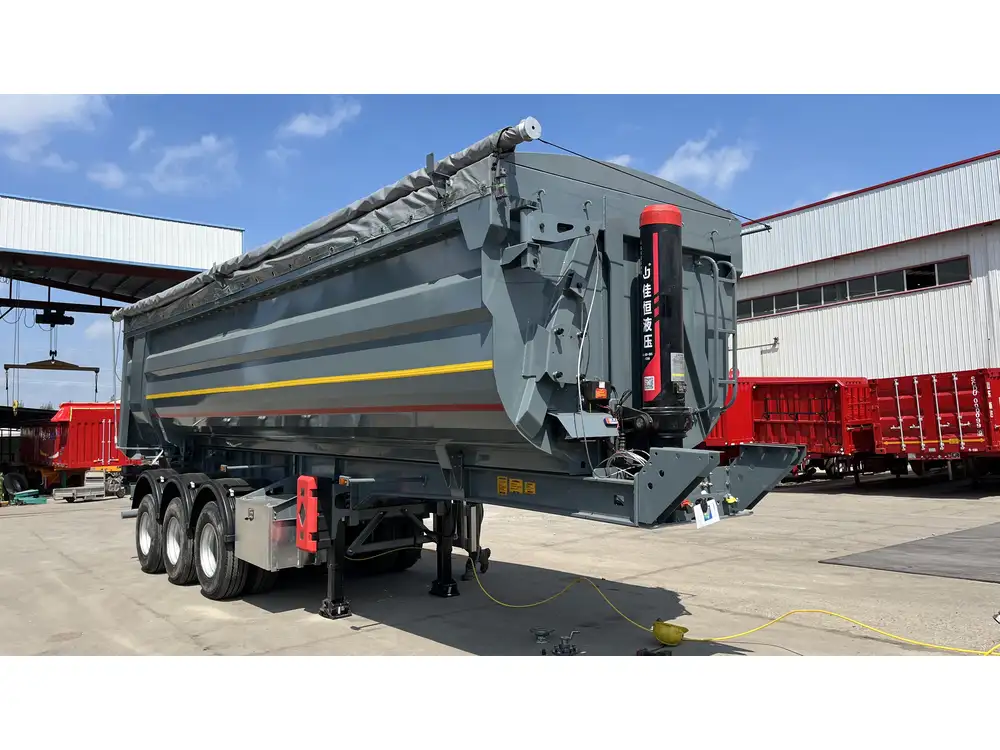
Standard Container Trailer Sizes
Understanding standard container trailer sizes is fundamental for businesses to align their logistics strategies effectively. The most common sizes are based on international standards, ensuring compatibility across different regions and modes of transportation.
20-Foot Trailers
Dimensions:
- Length: 20 feet
- Width: 8 feet
- Height: 8.5 feet
Capacity:
- Volume: Approximately 1,169 cubic feet
- Weight: Up to 60,000 lbs (varies based on trailer specifications)
20-foot trailers are ideal for smaller shipments, providing a balance between capacity and maneuverability. They are widely used for regional deliveries and in scenarios where space constraints exist.
40-Foot Trailers
Dimensions:
- Length: 40 feet
- Width: 8 feet
- Height: 8.5 feet
Capacity:
- Volume: Approximately 2,390 cubic feet
- Weight: Up to 80,000 lbs (varies based on trailer specifications)
The 40-foot trailer is the workhorse of the transportation industry, accommodating a larger volume of goods while maintaining compatibility with various transportation infrastructures, including ports and warehouses.
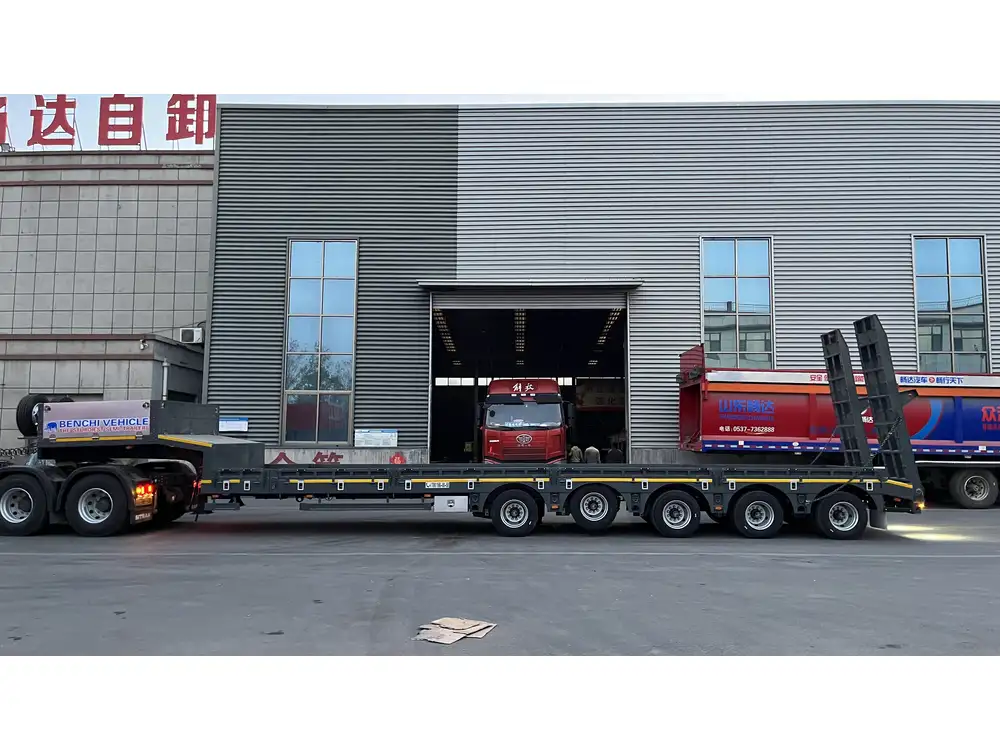
45-Foot Trailers
Dimensions:
- Length: 45 feet
- Width: 8.5 feet
- Height: 9.5 feet
Capacity:
- Volume: Approximately 3,000 cubic feet
- Weight: Up to 90,000 lbs (varies based on trailer specifications)
Introducing an extra five feet, the 45-foot trailer offers increased cargo space, making it suitable for larger shipments without compromising on road safety and regulatory compliance.
Specialized Container Trailer Sizes
Beyond standard sizes, CarMax Trailer provides specialized container trailers tailored to specific cargo types and transportation requirements.
Reefer Trailers
Designed for transporting temperature-sensitive goods, reefer trailers come equipped with refrigeration units that maintain consistent temperature levels, ensuring the integrity of perishable items throughout the journey.
Key Features:
- Temperature control systems
- Insulated walls for energy efficiency
- Advanced monitoring systems

Flatbed Trailers
Flatbed trailers offer a versatile solution for transporting oversized or irregularly shaped goods. Their open design facilitates easy loading and unloading of heavy machinery, construction materials, and other large items.
Key Features:
- Removable or fixed sides
- High weight capacity
- Adjustable decking
Lowboy Trailers
Lowboy trailers have a lower deck height, making them ideal for transporting tall or heavy machinery that requires a lower center of gravity. They are commonly used in the construction and industrial sectors.
Key Features:
- Sloped front deck
- Enhanced stability
- High load capacity
Factors to Consider When Choosing a Container Trailer Size
Selecting the appropriate trailer size involves evaluating multiple factors to ensure operational efficiency and compliance with regulations.

Cargo Type and Volume
The nature and volume of the cargo directly influence the trailer size selection. Perishable goods may require reefer trailers, while oversized machinery might necessitate flatbed or lowboy trailers.
Weight Limits and Capacity
Different trailers have varying weight capacities. It’s crucial to account for both the cargo weight and the trailer’s own weight to comply with road regulations and ensure safe transportation.
Route and Accessibility
Consideration of the transportation route is essential. Urban areas with narrow roads and bridges may favor smaller trailers, whereas long-haul routes on highways can accommodate larger sizes.
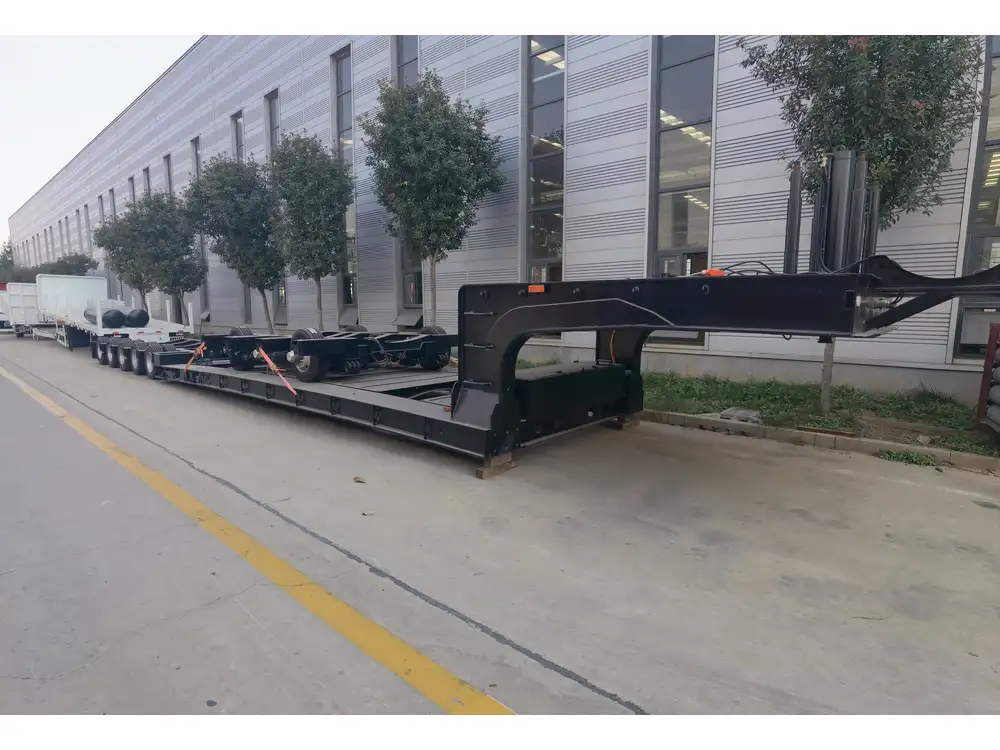
Regulatory Compliance
Adhering to local and international transportation regulations regarding trailer dimensions and weights is mandatory. Non-compliance can result in fines and operational delays.
CarMax Trailer’s Range of Container Sizes
At CarMax Trailer, we offer a comprehensive range of container trailers designed to meet diverse transportation needs. Our trailers are engineered with precision, ensuring durability, reliability, and optimal performance.
Features and Specifications
| Trailer Size | Length | Width | Height | Volume (cubic feet) | Max Weight (lbs) |
|---|---|---|---|---|---|
| 20-Foot | 20 ft | 8 ft | 8.5 ft | 1,169 | 60,000 |
| 40-Foot | 40 ft | 8 ft | 8.5 ft | 2,390 | 80,000 |
| 45-Foot | 45 ft | 8.5 ft | 9.5 ft | 3,000 | 90,000 |
CarMax Trailer Highlights:
- Robust Construction: High-strength materials ensure longevity and resistance to wear and tear.
- Advanced Suspension Systems: Enhanced ride quality and load stability.
- Safety Features: Equipped with modern braking systems, lighting, and reflective markers for enhanced visibility.

Customization Options
Understanding that every business has unique needs, CarMax Trailer offers customization options to tailor trailers to specific requirements. Whether it’s modifying the interior layout, adding specialized equipment, or adjusting dimensions within regulatory limits, our team collaborates closely with clients to deliver bespoke solutions.
Comparative Analysis: Choosing the Right Size for Your Needs
Making an informed decision between different trailer sizes involves balancing various factors. Below is a comparative analysis to guide your selection process.
Efficiency vs. Flexibility
- 20-Foot Trailers: Highly efficient for smaller shipments and more flexible in navigating tight routes.
- 40-Foot Trailers: Strike a balance between capacity and accessibility, suitable for most standard transportation needs.
- 45-Foot Trailers: Offer maximum capacity, ideal for large-volume shipments but may face restrictions on certain routes.
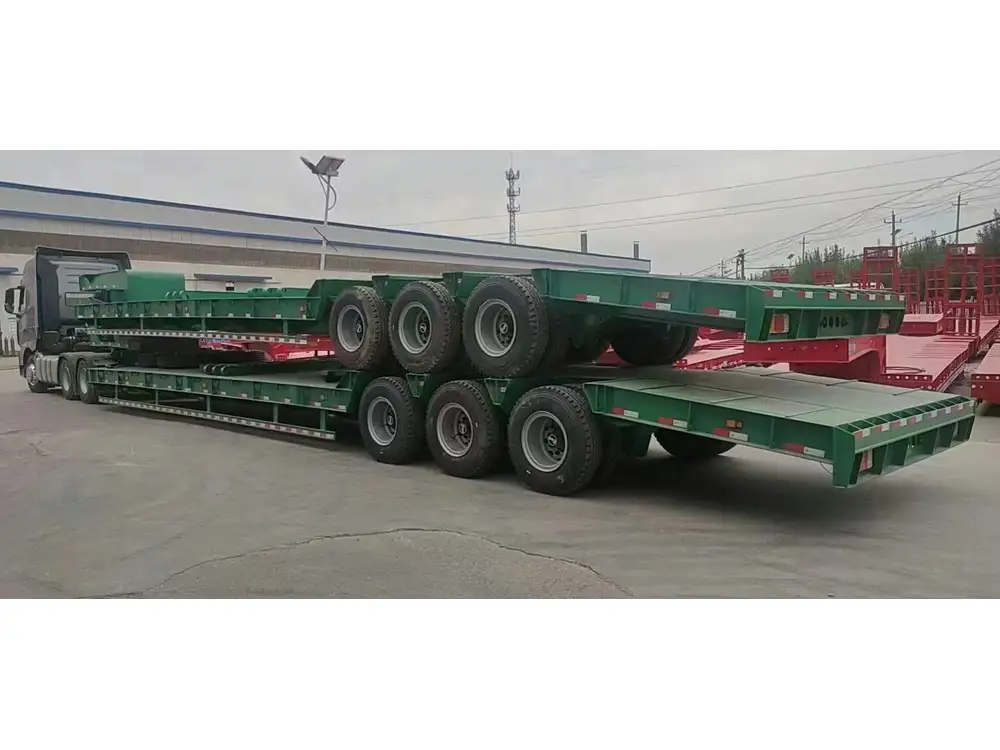
Cost Implications
- Initial Investment: Larger trailers generally entail higher upfront costs.
- Operational Costs: Fuel consumption increases with trailer size and weight. However, larger trailers can reduce the number of trips needed, potentially offsetting fuel costs.
- Maintenance: Bigger trailers may require more maintenance due to increased wear and tear.
Maintenance Considerations
Regular maintenance is crucial to ensure trailer longevity and operational safety. Features such as advanced suspension systems and durable materials, as offered by CarMax Trailer, can reduce maintenance frequency and costs.
Optimizing Container Utilization
Maximizing the efficiency of container trailer usage involves strategic planning and execution. Here are key strategies to optimize container utilization.

Load Distribution
Proper weight distribution is essential to maintain trailer balance and prevent undue stress on axles. Ensure that heavier items are placed centrally and evenly across the trailer’s length.
Securing Cargo
Using appropriate securing mechanisms, such as straps, chains, and tarps, prevents cargo from shifting during transit, reducing the risk of damage and ensuring compliance with safety standards.
Maximizing Space
Efficient packing techniques, such as stacking and compartmentalizing, can significantly increase the cargo volume, ensuring that the trailer is fully utilized without exceeding weight limits.

Future Trends in Container Trailer Sizes
The transportation industry is continuously evolving, with innovations shaping the future of container trailer sizes.
Technological Advancements
- Smart Trailers: Integration of IoT devices for real-time tracking and monitoring.
- Automated Loading Systems: Enhancing loading efficiency and reducing manual labor.
- Lightweight Materials: Developing trailers with lighter yet stronger materials to improve fuel efficiency.
Sustainability and Eco-Friendly Designs
With increasing environmental concerns, manufacturers are focusing on eco-friendly trailer designs that reduce carbon emissions and promote sustainability. Features include aerodynamic designs to enhance fuel efficiency and the use of recyclable materials.
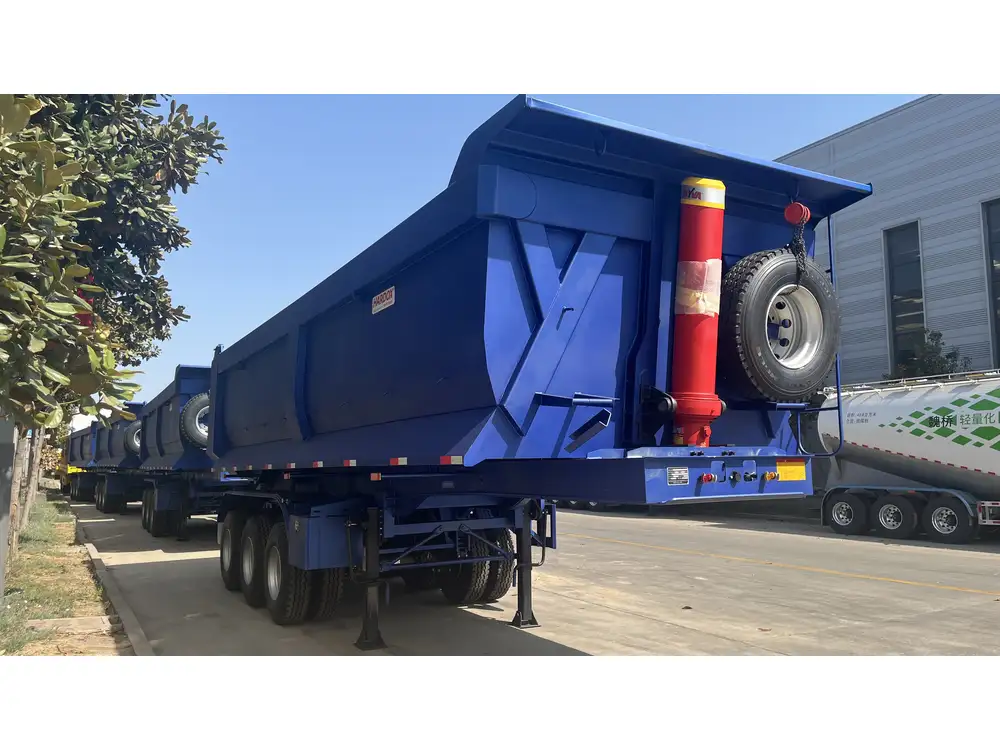
Conclusion
Choosing the right container trailer size is a critical decision that impacts operational efficiency, cost-effectiveness, and overall business success. At CarMax Trailer, we provide a diverse range of container trailer sizes, each engineered to meet specific transportation needs. By understanding your cargo requirements, evaluating key factors, and leveraging our expertise, you can optimize your logistics operations and achieve seamless transportation solutions.
Frequently Asked Questions
1. What is the standard length of a container trailer?
The standard lengths for container trailers are typically 20 feet, 40 feet, and 45 feet. Each size caters to different cargo volumes and transportation needs.

2. How do I determine the right container trailer size for my business?
Assess your cargo type, volume, weight, and the typical routes you operate. Consider factors like load distribution, accessibility, and regulatory compliance to choose the trailer size that best fits your operational requirements.
3. Are CarMax Trailer’s container trailers customizable?
Yes, CarMax Trailer offers customization options to tailor trailers according to specific business needs, including modifications to interior layouts, specialized equipment additions, and dimension adjustments within regulatory limits.
4. What maintenance is required for container trailers?
Regular maintenance includes inspecting and servicing the suspension systems, brakes, lighting, and structural components. Ensuring proper load distribution and securing cargo also minimizes wear and tear, extending trailer longevity.
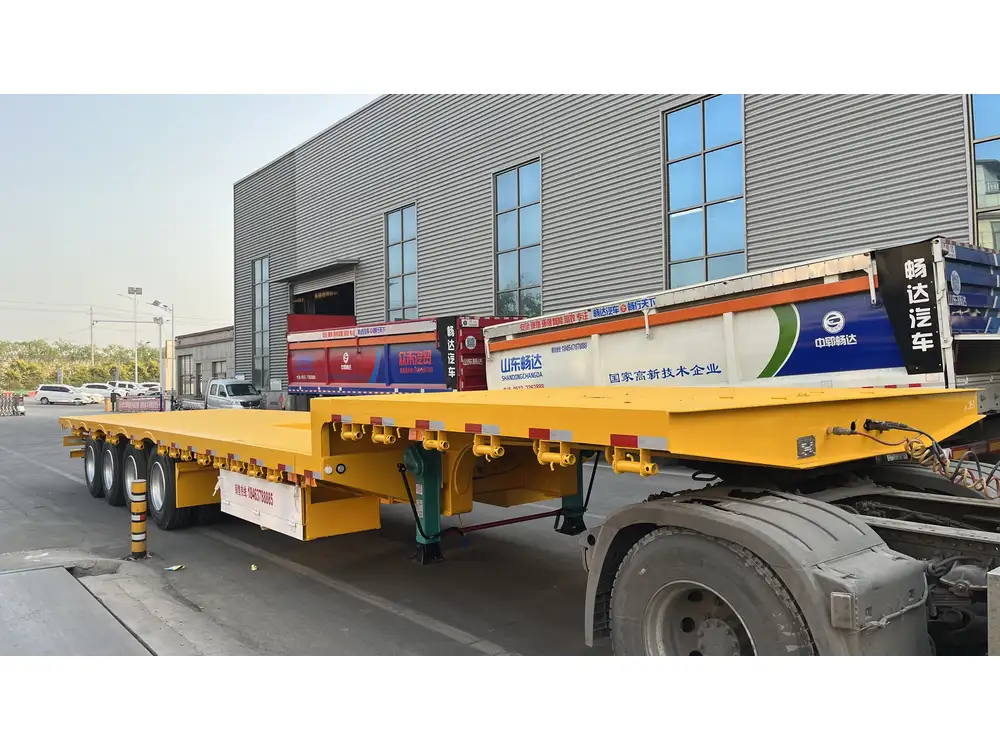
5. How do container trailer sizes impact transportation costs?
Larger trailers can carry more cargo per trip, potentially reducing fuel and labor costs. However, they may also entail higher initial investments and maintenance expenses. Balancing trailer size with operational efficiency is key to managing overall transportation costs.



